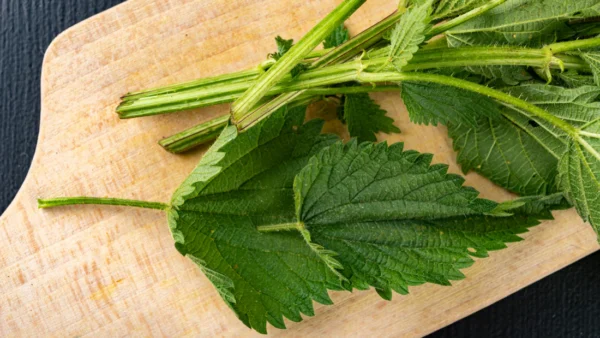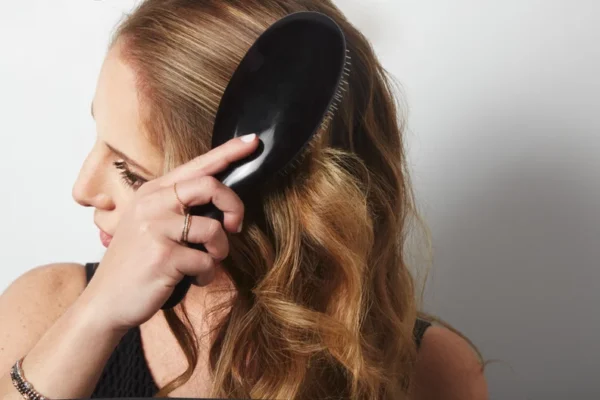
Don’t Chuck Garden Weeds – Repurposing Stinging Nettles for Hair and Scalp Care

Weeds and stinging nettles can be a nuisance for your garden. But before you toss out these pesky plants, did you know stinging nettles are a boon for your hair health?
In this article, I share the little-known health benefits of stinging nettles and how these can help improve your hair.

Why stinging nettles?
While rosemary oil has gained popularity on social media for promoting hair growth, with almost 150k posts on TikTok, it’s not the only herb that can benefit your locks.
Urtica dioica, commonly known as stinging nettles, offers a surprising range of benefits for hair health.
Despite being commonly associated with its painful stings, stinging nettles have been used medicinally for centuries.
Studies have found that stinging nettle leaves are rich in antioxidants, as well as the plant having anti-inflammatory characteristics. That’s why nettle tea has long been recommended for its various health benefits, including reducing skin irritations and allergy symptoms.
Nettles are also rich in vitamins A, C, K, and B, as well as minerals like iron, magnesium and silica, all of which are essential for healthy hair growth.
How to use stinging nettles for haircare
Just like homemade rosemary oil, you can infuse stinging nettles into an oil for a pre-shampoo treatment for your scalp and lengths.
Simply heat the stinging nettles in a carrier oil such as jojoba, coconut or olive oil for around 20 minutes. Drain the remaining nettles and dispense the oil into a bottle. A dark-coloured glass bottle will work best for preserving the oil from light degradation.
Cooking stinging nettles, either by drying them in the oven or steeping them in hot liquids, neutralises the stinging chemicals. So, no need to worry that your nettle oil will sting you.
Before you shampoo, apply five to 10 drops of the oil to your scalp and allow it to sit for a minimum of 10 minutes before rinsing out.
Alternatively, you can boil stinging nettles in water to make stinging nettle tea. This can either be drank to enjoy its health benefits, or chilled and used as a pre-shampoo rinse.
Staying safe while using stinging nettles
Whatever you do, don’t rub the stinging nettle directly to your scalp like this TikToker, or risk inflaming your scalp or even triggering an allergic reaction.
It’s crucial to handle stinging nettles properly to avoid their irritating sting.
Stinging nettles are painful thanks to their super fine hair-like barbs which inject irritating chemicals into your skin. For most people, the discomfort should go away after a few hours or so, but for others, the sting can trigger a severe, even life-threatening reaction.
Rubbing the sting can also cause the chemicals to travel deeper into your skin, so do not rub your scalp with stinging nettles.
If you’re looking to harvest fresh stinging nettles, wear protective gardener’s gloves to avoid stinging your hands, and use a sharp pair of scissors to cut the stem.
Young nettles are best, but you can still harvest stinging nettles in the summer months.
Just be sure to avoid any stinging nettles which have begun to flower and seed, as some experts say this is a sign nettles have produced cystoliths. These are tiny calcium rods from plants which, if absorbed by the body, can block and damage kidney function.
Written by Nicole Petty, Hair Expert, Milk + Blush














































